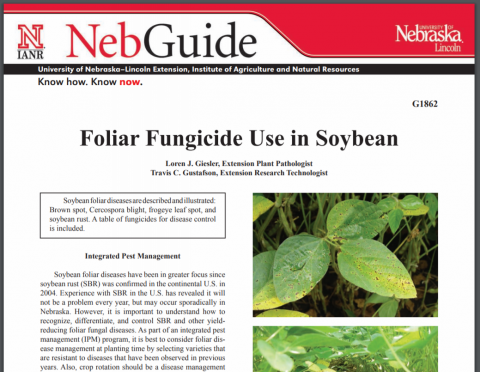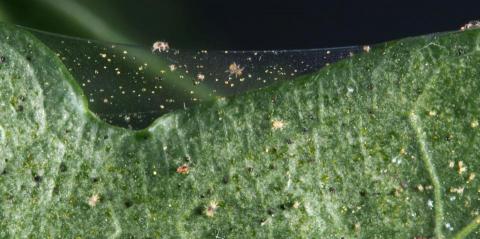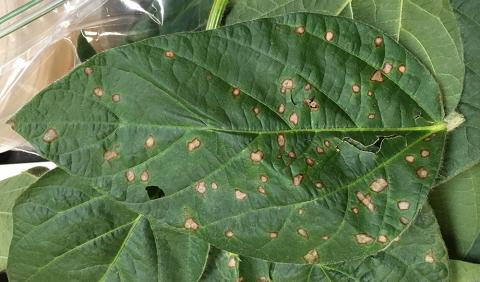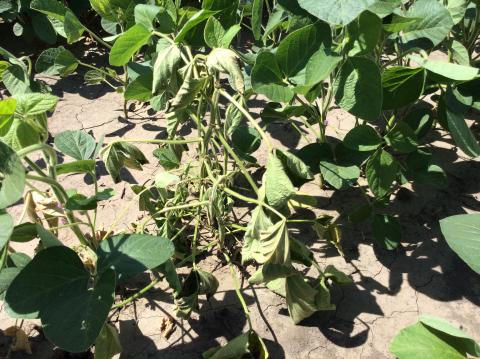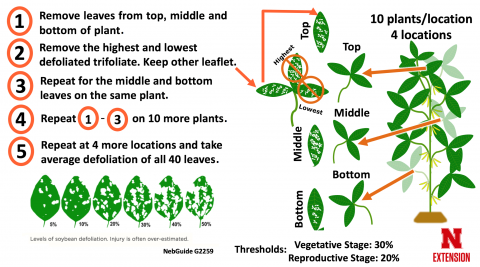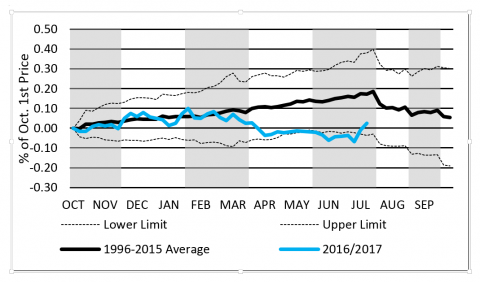New Publications from Nebraska Extension
August 3, 2017
New agricultural publications from Nebraska Extension include ones on fungicides for soybeans, a primer on cover crops, on-farm research results, agriculture in the Nebraska Panhandle, and ones on estimating soil water deep percolation or run-off.
USDA-NASS: Corn 61% Good-Excellent; Soybean, 60%
July 31, 2017
Winter wheat harvest has been completed across most of Nebraska, according to the July 30 report from USDA’s National Agricultural Statistics Service. Significant rainfall of an inch or more was received across most of the state during the previous week and a few north central counties received as much as four inches of rain.
Spider Mite Reports Increasing
July 28, 2017
Spider mite populations are increasing in Nebraska. Fields should be scouted and the species correctly identified to provide proper management. Population levels should also be considered when treating fields with other insecticides that may knock out all natural predators, leading to population explosions of spider mites.
Charcoal Rot: A Hidden Threat to Soybean Yield
July 27, 2017
The persistent hot weather this growing season may be conducive to the development of charcoal rot disease in soybean and scouting is urged. Although charcoal rot is most severe in hot dry conditions, it can also cause losses when ample moisture is present, making it a hidden threat to yield.
Frogeye Leaf Spot in Soybeans in Eastern Nebraska
July 27, 2017
Frogeye leaf spot is occurring in Nebraska soybeans, particularly in the eastern third of the state. While some fields have minor levels, some have significant levels and a fungicide treatment may be needed.
Phytophthora Root and Stem Rot Developing in Soybeans
July 27, 2017
As conditions heated up the last two weeks, the fungus causing phytophthora root and stem rot became active in irrigated fields and those fields that received significant rain over the past couple weeks. Growers are encouraged to scout for this disease and, if found, manage through seed selection and treatment for the next crop.
Estimating Soybean Leaf Defoliation
July 26, 2017
Growers are reporting finding painted lady caterpillars and silver spotted skipper caterpillars in soybeans. This guide can help estimate leaf defoliation in soybean, key to determining whether treatment is necessary.
Soybean Marketing: Preparing for the August WASDE Report
July 18, 2017
Mid- to late-summer price expectations and marketing strategies for old crop and new crop soybeans in light of the August WASDE report.
